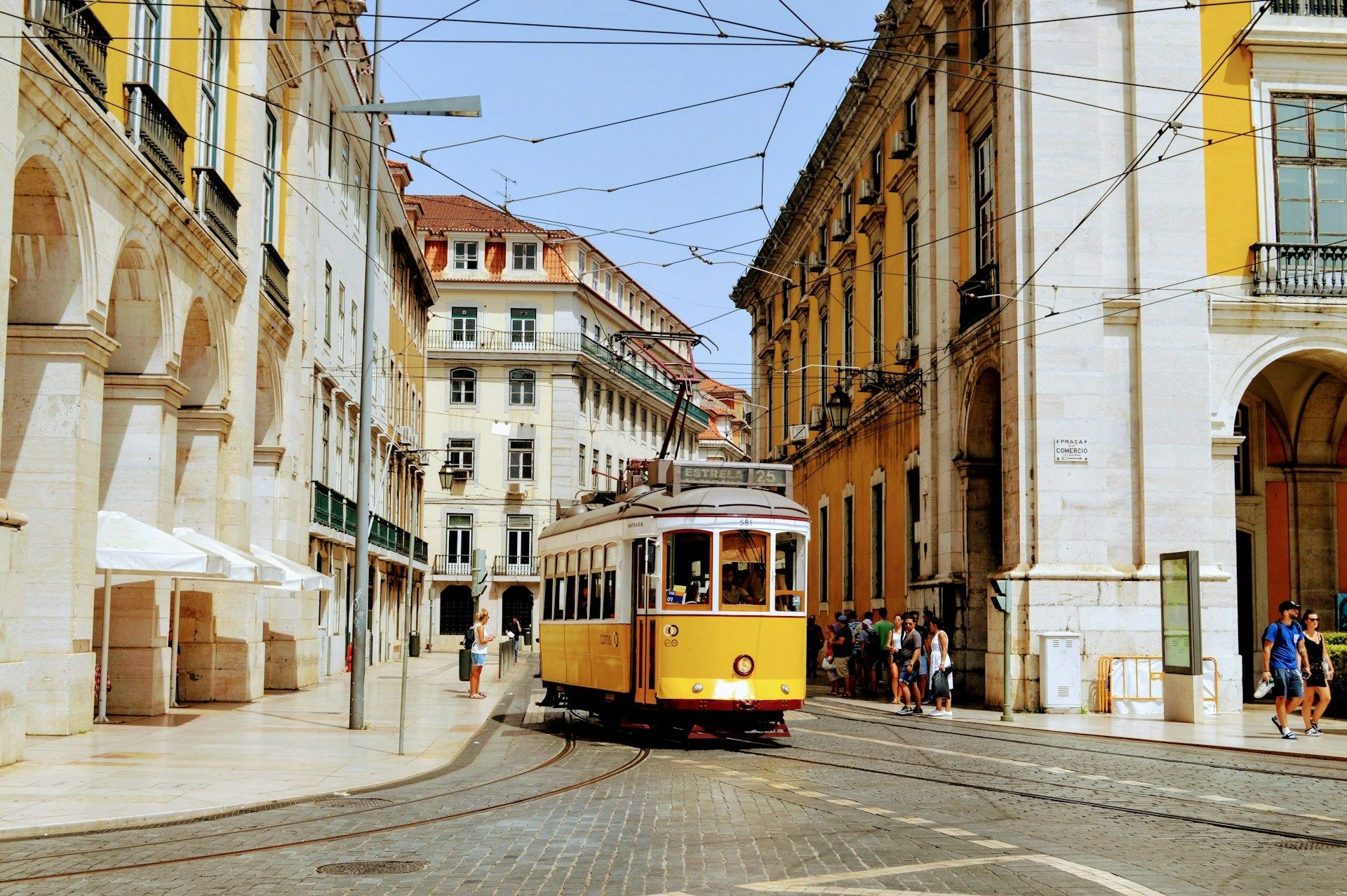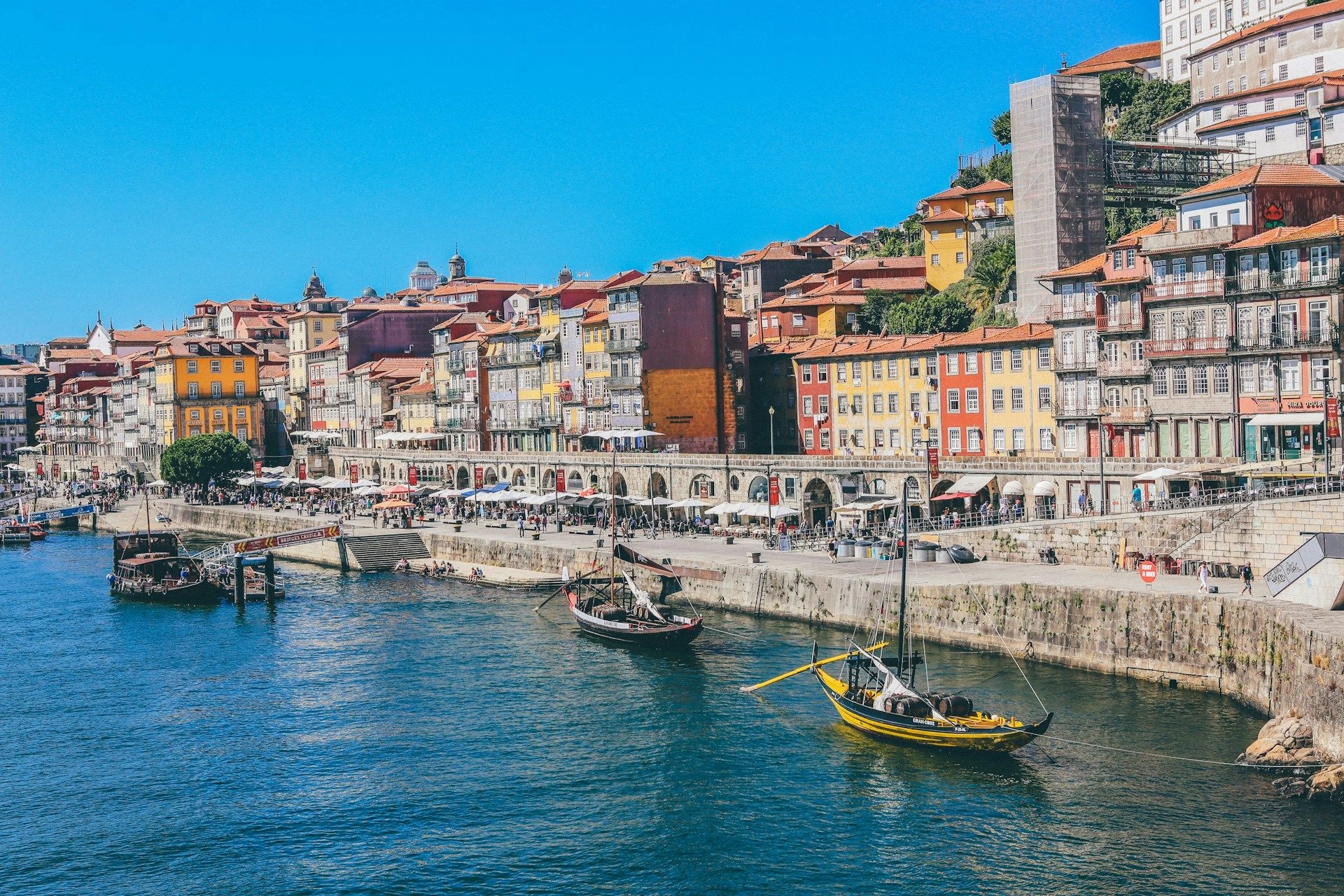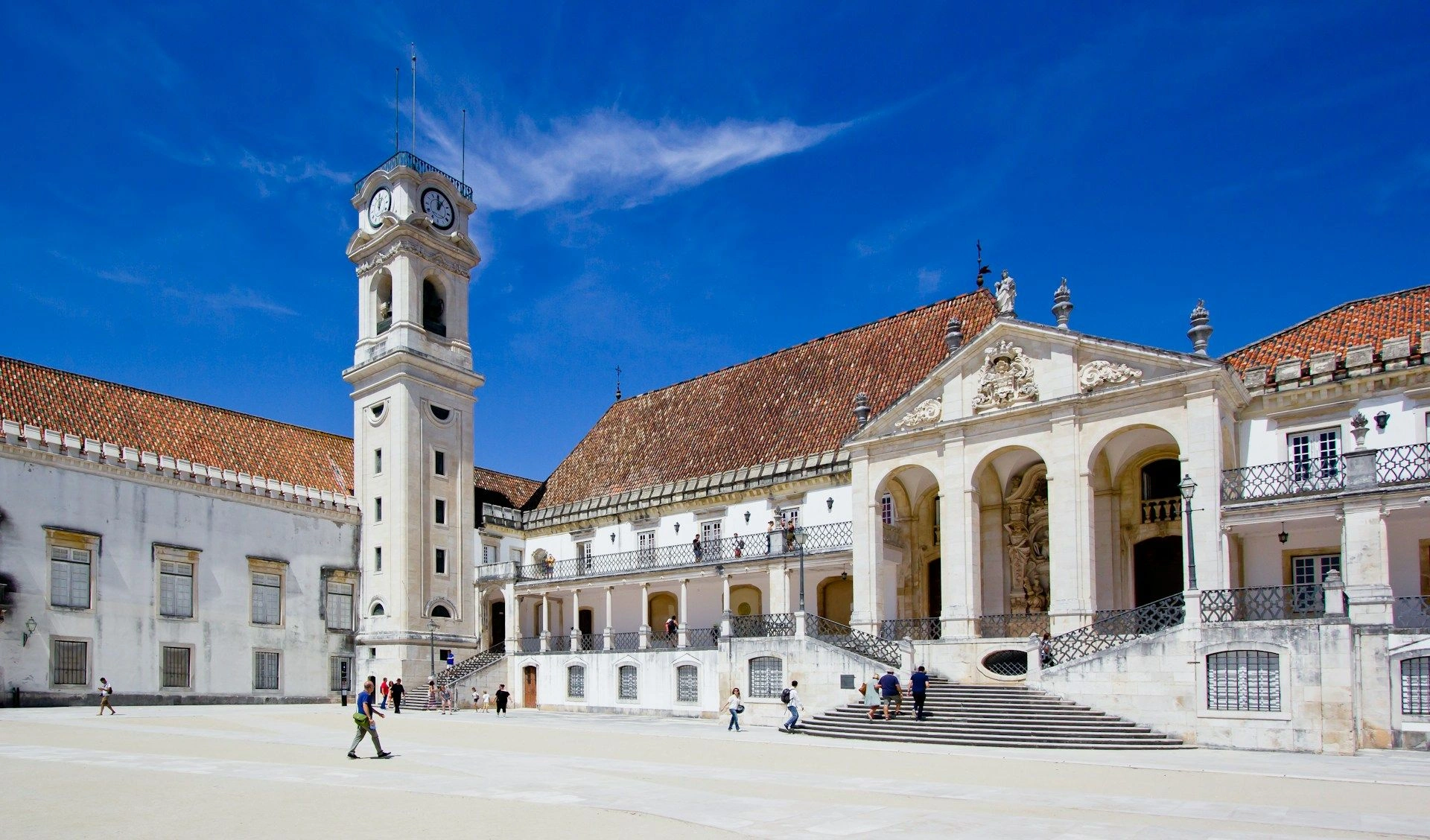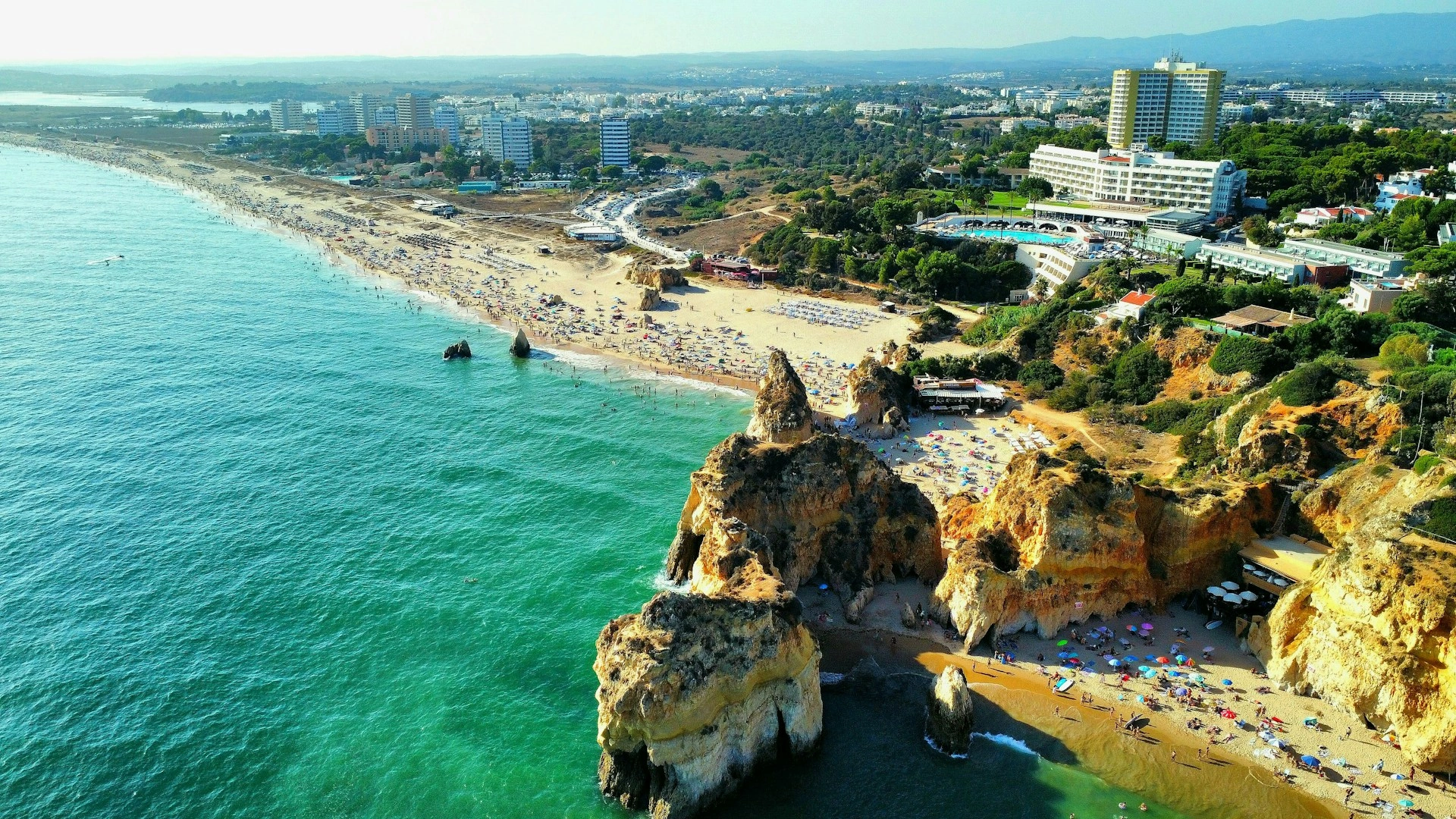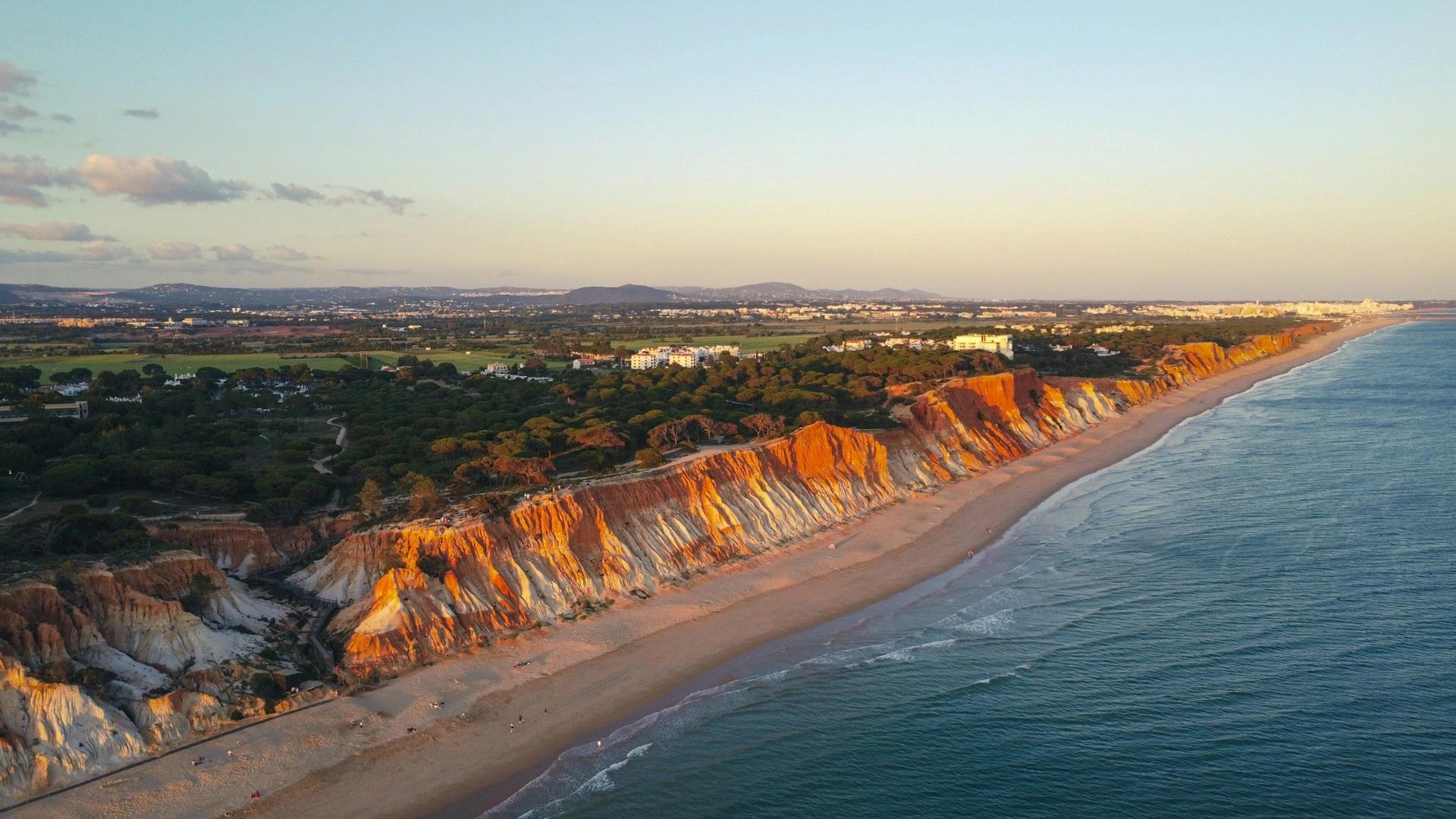Commercial Property Listings in Portugal – Investment OpportunitiesHistoric facades, tourist flow, and EUaccess at Europe’s edge
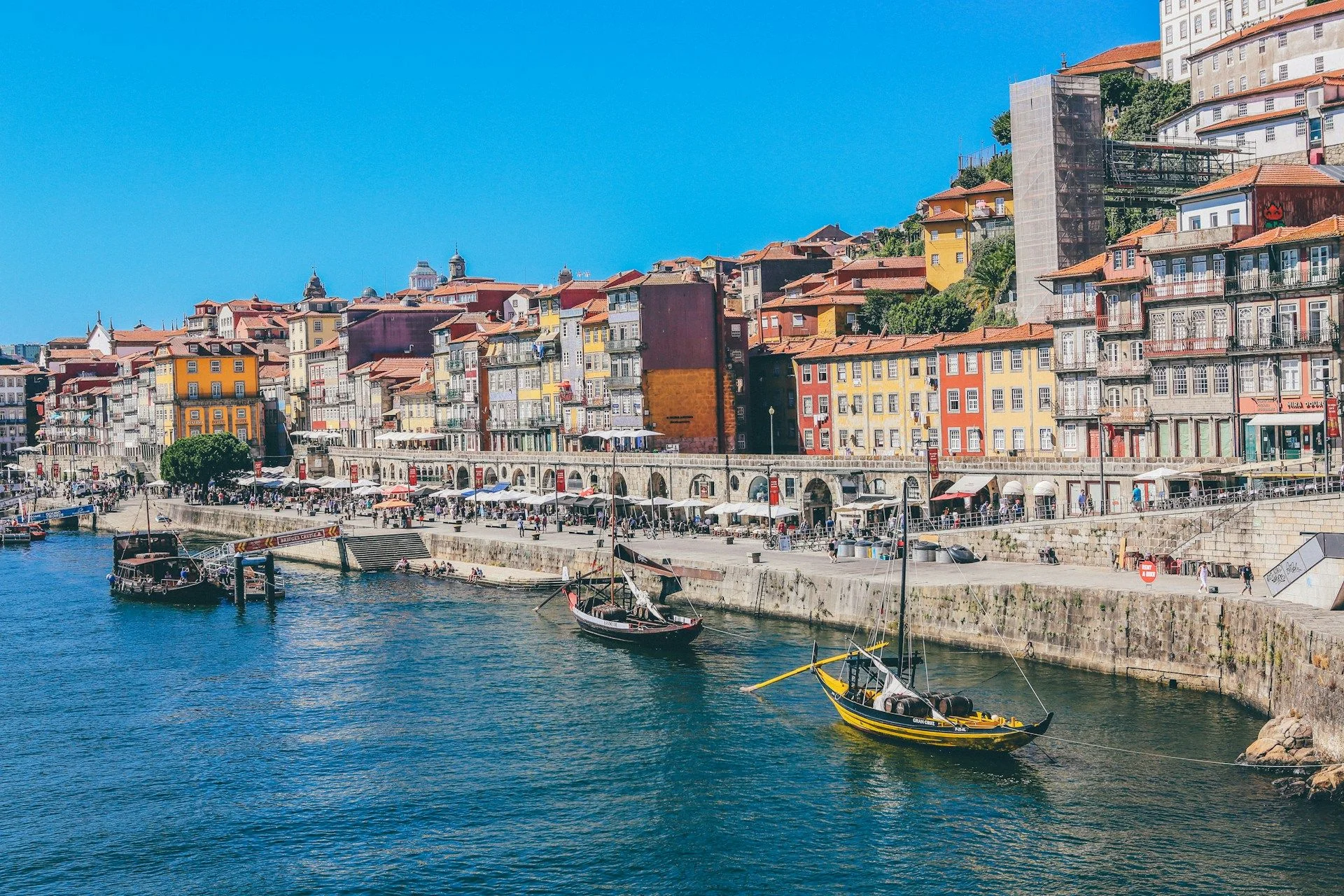
Best offers
in Portugal
Benefits of investment in
Portugal real estate
Golden Visa through real estate
Portugal’s property investment program offers a direct route to residency and eventual citizenship within the EU.
Stable rental demand in Lisbon and Porto
Major cities remain attractive to digital nomads, families, and expats, keeping rental yields consistent.
Favorable tax regimes for newcomers
Programs like NHR provide significant tax benefits for new residents and foreign-sourced income.
Golden Visa through real estate
Portugal’s property investment program offers a direct route to residency and eventual citizenship within the EU.
Stable rental demand in Lisbon and Porto
Major cities remain attractive to digital nomads, families, and expats, keeping rental yields consistent.
Favorable tax regimes for newcomers
Programs like NHR provide significant tax benefits for new residents and foreign-sourced income.

Useful articles
and recommendations from experts
Buy Commercial Property in Portugal: Europe’s Western Gateway
Portugal, located on the westernmost edge of continental Europe, has swiftly gained recognition as one of the continent’s most enticing destinations for business and real estate investment. Whether you’re drawn by the country’s sunny climate, welcoming culture, or competitive economic environment, choosing to buy commercial property in Portugal can offer both lucrative returns and a robust foothold in the European market. From commercial real estate for sale in Lisbon to mixed-use developments in the Algarve, investors benefit from a blend of tradition, innovation, and progressive government policies.
Underlining Portugal’s rising appeal are multiple factors: economic reforms enacted in the aftermath of the global financial crisis, a flourishing startup scene, and growing numbers of foreign entrepreneurs lured by relatively low overhead costs. The government actively promotes foreign capital through incentive programs like the Golden Visa Portugal commercial investments scheme, which grants residency to non-EU investors who meet specific thresholds. As a result, the country’s property market has evolved into an European investment gateway, welcoming buyers eager to capitalize on a rising demand in coastal cities and inland hubs alike.
In conjunction with the nation’s stable political climate, Portugal’s membership in the European Union ensures attractive EU property regulations, offering foreign investors transparent legal frameworks and standardized processes for acquiring real estate assets. Portugal’s strategic geographic location—a short flight away from major European capitals—also boosts its commercial attractiveness, particularly for those looking to establish or expand an international portfolio.
Invest in Portuguese Real Estate: Growth Sectors and Advantages
Opting to invest in Portuguese real estate involves understanding the local market drivers that influence commercial property values. While tourism stands out as a major contributor, other sectors such as technology, manufacturing, and professional services also shape the country’s economic landscape. Below are key areas worth examining:
1. Tourism and Hospitality
Portugal’s strong tourism industry in Algarve, Lisbon, and Porto is a cornerstone of the economy. Not only do these destinations attract millions of visitors each year, but they also create consistent demand for hotels, restaurants, and leisure-focused retail properties. In addition, the coastal regions are gaining prominence as prime spots for boutique resorts and vacation rentals—bolstered by the region’s sunny climate and picturesque shorelines.
2. Emerging Tech and Startup Scene
Lisbon has surged in popularity among tech entrepreneurs, thanks in part to supportive government policies, networking events like the Web Summit, and a vibrant pool of international talent. As these startups and scale-ups flourish, they bring demand for office spaces and co-working facilities, thereby elevating rental yields for modern, well-located business centers. Porto similarly fosters tech innovation, adding to the Portugal property market outlook for commercial owners.
3. Infrastructure and Logistics
The nation’s well-developed highway and rail networks—together with maritime hubs like the Port of Sines—facilitate trade across Europe and further afield. Warehousing facilities and industrial parks near these transit corridors can be worthwhile investments, especially for companies seeking an efficient gateway to the EU.
4. Resident and Investor Incentives
Beyond the Golden Visa scheme, Portugal’s Non-Habitual Resident (NHR) tax program provides beneficial tax treatment for certain foreign professionals and retirees. This fiscal appeal attracts a pool of high-skilled residents who inject further capital into commercial ventures, whether through direct business operations or property acquisitions.
Collectively, these elements underscore Portugal’s well-rounded economic profile, where robust tourism meets emerging industries, and a progressive policy climate helps reduce barriers to entry. Although competition for prime assets in major urban centers can be fierce, investors willing to expand into secondary markets may discover hidden gems with potential for high rental yields and appreciation.
Commercial Real Estate in Lisbon: Capitalizing on the City’s Buzz
For many foreign investors, commercial real estate for sale in Lisbon serves as a natural entry point into Portugal. The capital city enchants visitors with its distinctive architecture, culinary scene, and business-friendly environment. Over the past decade, Lisbon has undergone a renaissance—transitioning from a quiet cultural center to a global hotspot for tourism, tech, and international conferences.
• Historical Districts: Renovated buildings in areas like Alfama, Chiado, or Bairro Alto can be prime locations for boutique hotels, stylish restaurants, and upscale retail. Historic city center developments often cater to a mix of tourists and locals seeking authentic, curated experiences. Although zoning and refurbishment regulations might be stricter in heritage zones, the high foot traffic compensates through higher rental rates and stable occupancy.
• Modern Business Zones: Neighborhoods like Parque das Nações or the Avenidas Novas corridor offer state-of-the-art office facilities, frequently targeting multinational corporations. These areas benefit from good public transport links, proximity to Lisbon’s airport, and easy highway access. Investors who acquire properties here can tap into the city’s thriving professional services and tech sectors, often securing long-term corporate tenants.
• Retail Opportunities: Lisbon’s popularity as a tourist destination means retail locations—particularly along major avenues or near landmark sites—can command premium rents. Modern shopping centers around the city also accommodate international brands, adding an extra layer of demand.
Despite Lisbon’s ascending costs, the city’s cultural depth, strategic location, and strong tourism footfall collectively underpin a resilient property market. Conducting thorough due diligence on building conditions, local regulations, and growth trajectories can aid investors in selecting prime projects that merge heritage charm with contemporary commerce.
Buy office in Porto: Northern Portugal’s Rising Star
While Lisbon often takes the spotlight, office space in Porto is garnering increased attention among both locals and foreign investors. Portugal’s second-largest city has its own unique blend of historical charm, entrepreneurial energy, and cultural authenticity:
1. Vibrant Entrepreneurial Ecosystem
Homegrown tech startups and regional branches of global corporations contribute to Porto’s need for modern office facilities. Many of these enterprises prefer centrally located buildings near transport hubs or in emerging business districts like Boavista. Developers upgrading older structures with contemporary design elements and digital infrastructure typically find strong uptake from tenants seeking flexible, design-forward workspaces.
2. Tourism Tailwinds
Known for its world-famous port wine and the UNESCO-listed Ribeira district, Porto’s tourism has soared in recent years. This influx of visitors stimulates the hospitality sector and, by extension, professional services that cater to foreign guests—such as tour operators and specialized retailers. Commercial buildings that can integrate a mix of offices and tourist-facing amenities often achieve more stable cash flow.
3. Affordable Urban Expansion
Compared to Lisbon, Porto generally offers more competitive pricing for commercial properties, drawing cost-conscious businesses and investors. At the same time, it retains robust connectivity via rail, highways, and the Porto Airport. As the city continues to modernize, well-located assets stand poised for future appreciation—providing an attractive entry point for those seeking moderate capital outlay and healthy potential returns.
4. Local Partnerships and Development
Investors keen on venturing into Porto’s office market may benefit from local partnerships—especially to navigate city-specific regulations, language barriers, and cultural nuances. Collaborating with established brokers or property developers can streamline licensing, building permits, and tenant acquisition in a city known for its welcoming atmosphere yet intricate local practices.
Portugal Property Market : Sustained Growth and Coastal Demand
Assessing the broader Portugal property market outlook reveals a country in the midst of sustained economic renewal, supported by a blend of policy-driven reforms, tourism expansion, and digital innovation. Below are some focal points shaping the near and medium-term commercial real estate environment:
1. Rising Demand in Coastal Cities
From Lisbon and Porto to resort towns along the Silver Coast and the strong tourism industry in Algarve, Portugal’s seafront regions remain magnets for both tourists and investors. Properties offering sea views, easy beach access, or premium leisure amenities typically command higher rents and occupancy rates. This surge includes not only hotels and vacation rentals but also retail establishments catering to tourist-driven spending.
2. Historic City Center Developments
Portugal’s urban revival trend continues, with government initiatives directing funding toward renovating older buildings. Commercial properties in these revitalized downtown areas, especially in Lisbon and Porto, can yield a blend of retail, hospitality, and office uses. Investors who undertake careful renovations can tap into historically preserved facades and architecture, adding a premium to rental rates.
3. European Investment Gateway
As part of the European Union, Portugal provides businesses with access to a vast, single market. Investors who establish a commercial presence can easily transact across EU member states, benefiting from standardized regulations. This cross-border advantage, when combined with the Golden Visa Portugal commercial investments program, ensures a steady influx of international buyers seeking both financial returns and residency privileges.
4. Potential for High Rental Yields
Commercial rents in prime neighborhoods have tracked upward as local businesses expand and foreign entrepreneurs establish new ventures. Office spaces in major cities frequently secure long-term contracts, while hospitality and retail assets benefit from tourism surges. Although yields vary based on location and property type, commercial real estate in Portugal has historically surpassed many European averages in certain niches.
Prospective investors who seek to buy commercial property in Portugal will find a market shaped by dynamic urban growth, strong tourism, and forward-thinking government policies. Whether focusing on commercial real estate for sale in Lisbon, modern office space in Porto, or hospitality ventures along the Algarve, Portugal offers a balanced portfolio of risk and reward. With its attractive EU property regulations, stable political climate, and strategic location, the country stands out as an ideal entryway for those looking to invest in Portuguese real estate. By aligning property choices with evolving consumer demand—be it tourism, co-working offices, or mixed-use developments—investors can tap into Portugal’s rising economic tide while enjoying the cultural richness of a nation that effortlessly merges history with modern enterprise.
